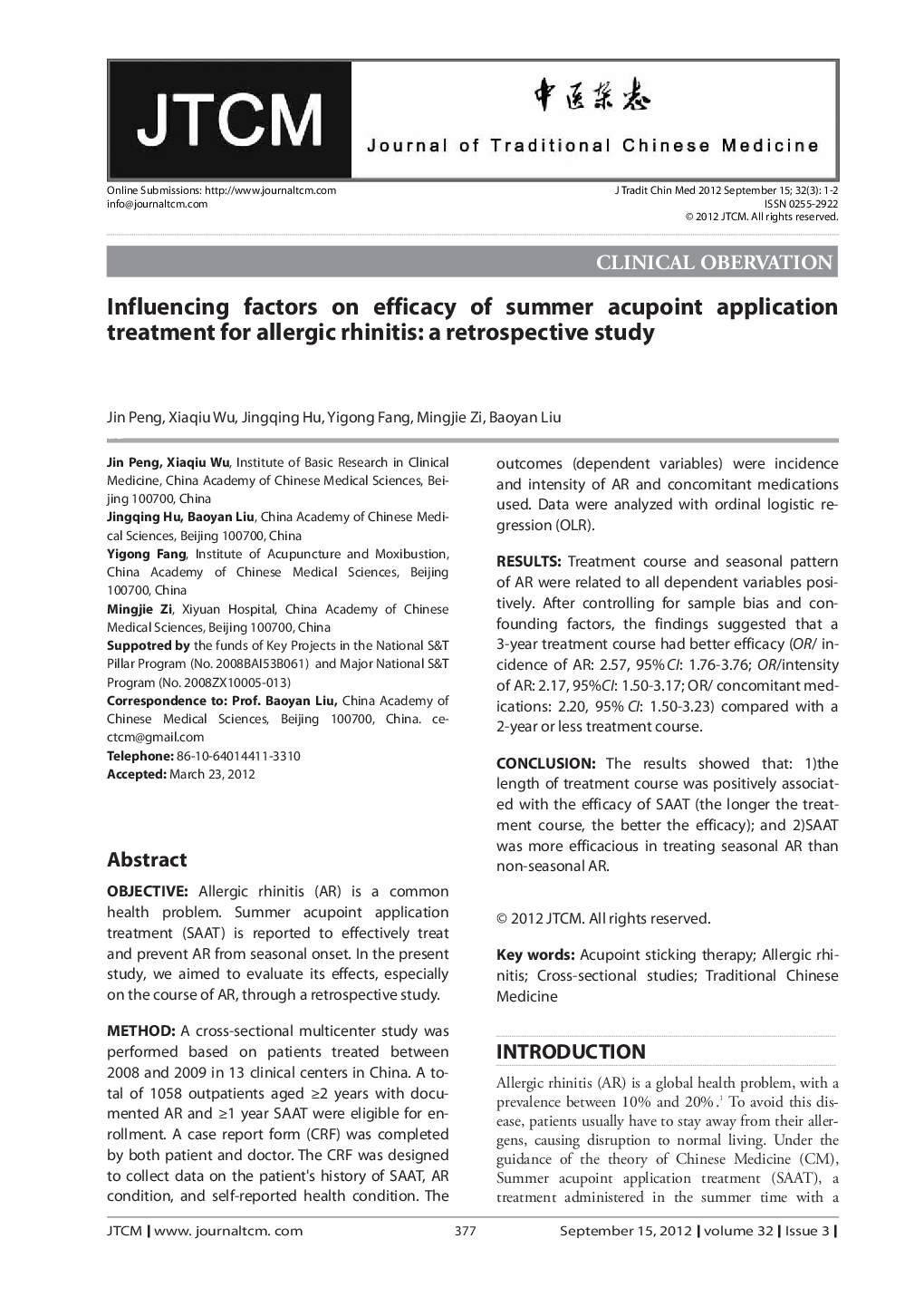| Article ID | Journal | Published Year | Pages | File Type |
|---|---|---|---|---|
| 4200974 | Journal of Traditional Chinese Medicine | 2012 | 5 Pages |
ObjectiveAllergic rhinitis (AR) is a common health problem. Summer acupoint application treatment (SAAT) is reported to effectively treat and prevent AR from seasonal onset. In the present study, we aimed to evaluate its effects, especially on the course of AR, through a retrospective study.MethodA cross-sectional multicenter study was performed based on patients treated between 2008 and 2009 in 13 clinical centers in China. A total of 1058 outpatients aged ≥2 years with documented AR and ≥1 year SAAT were eligible for enrollment. A case report form (CRF) was completed by both patient and doctor. The CRF was designed to collect data on the patient's history of SAAT, AR condition, and self-reported health condition. The outcomes (dependent variables) were incidence and intensity of AR and concomitant medications used. Data were analyzed with ordinal logistic regression (OLR).ResultsTreatment course and seasonal pattern of AR were related to all dependent variables positively. After controlling for sample bias and confounding factors, the findings suggested that a 3-year treatment course had better efficacy (OR/incidence of AR: 2.57, 95% CI: 1.76–3.76; OR/intensity of AR: 2.17, 95%CI: 1.50–3.17; OR/concomitant medications: 2.20, 95% CI: 1.50–3.23) compared with a 2-year or less treatment course.ConclusionThe results showed that: 1) the length of treatment course was positively associated with the efficacy of SAAT (the longer the treatment course, the better the efficacy); and 2) SAAT was more efficacious in treating seasonal AR than non-seasonal AR.
